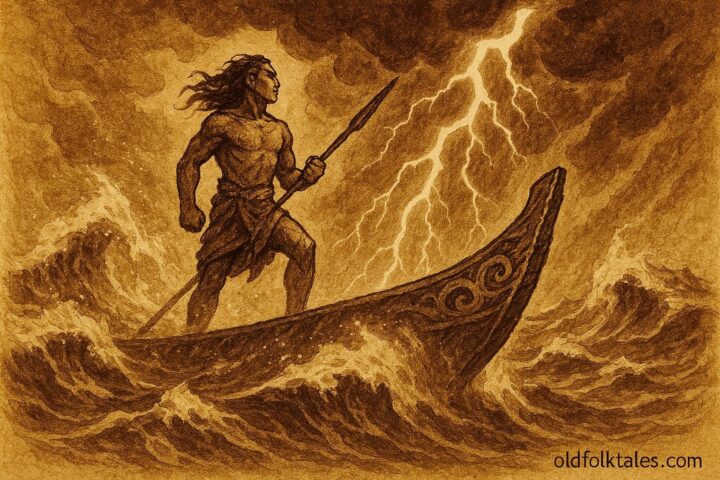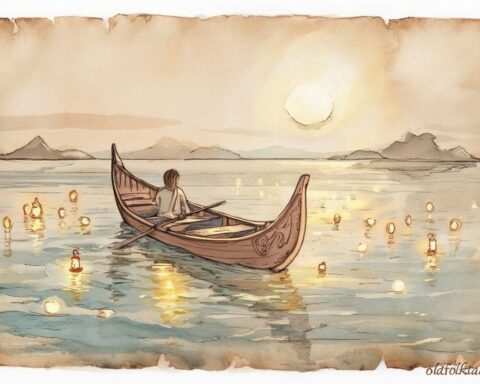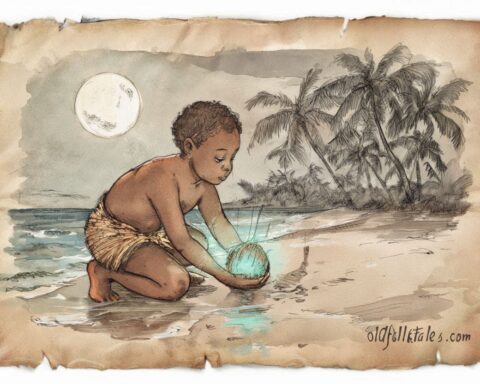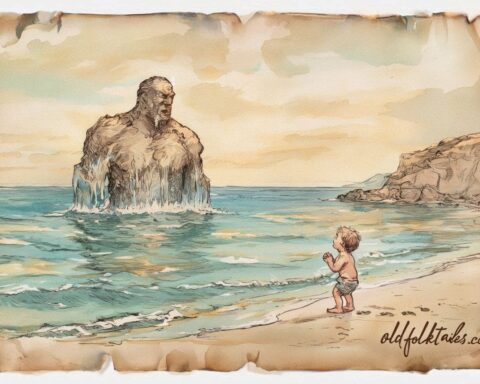Far below the reefs of Tonga, where coral gardens bloom like stars beneath the waves, there lived a young shark named Kavika, swift and curious. Unlike other sharks who hunted in packs, Kavika loved the quiet—especially the light that trembled down from the moon.
When the sea was calm and the tides slept, he would swim to the surface and gaze up at the glowing disk above. “So white, so far,” he murmured. “If I could touch that light, I’d never dive again.”
His mother warned him, “The moon is not yours to love, my son. She belongs to the sky, and you belong to the sea.”
But Kavika would not listen. Each night he leapt higher, trying to breach the surface where water kissed air. “Just one touch,” he whispered. “Just one.”
One evening, the moon herself looked down and saw his devotion. “Little shark,” she said softly, “why do you tire yourself so?”
“Because you are the most beautiful thing I have ever seen,” said Kavika. “I wish only to bring your light closer to my dark world.”
The moon was moved. “But I cannot leave the sky,” she said. “If I did, the tides would lose their song, and sailors would lose their way.”
“Then let me visit you,” Kavika pleaded.
“You are of salt and current,” said the moon, “and my realm is air and fire. You would perish before you reached me.”
Still, Kavika would not give up. “Then let me at least carry your reflection, so others may know your beauty.”
The moon smiled sadly. “Very well. I will give you a gift. But every gift carries a cost.”
She reached down with her silver light and kissed the shark upon the brow. His skin shimmered pale, and his eyes turned to glowing discs that caught every spark of light in the deep.
“From now on,” she said, “your kind will carry my reflection in your eyes. When sailors see it flash beneath the waves, they’ll know the moon still watches.”
Kavika thanked her, filled with joy. But as he turned to dive, the sea around him cooled—the kiss had taken warmth from his heart. He found he could no longer bear the company of others, for his body felt both of the sea and apart from it.
He swam alone forever after, surfacing each full moon to watch his beloved glow, the only creature whose eyes returned her light.
The people of Tonga say that when you see a shark’s eyes glint white in the dark water, it’s the moon’s reflection—a reminder that love, even unfulfilled, can still illuminate the deep.
Moral of the Story
True devotion does not demand possession. Love’s greatest act is to reflect beauty faithfully, even when it cannot be claimed.
Knowledge Check
1. Who was Kavika?
A young shark from Tonga who fell in love with the moon.
2. Why did he leap toward the sky?
He wished to touch the moonlight and bring it closer to the sea.
3. What gift did the moon give him?
Eyes that reflect her light forever beneath the ocean.
4. What was the cost of this gift?
Kavika became forever lonely, unable to live among others.
5. What do Tongan fishermen say about sharks’ eyes?
That they shine with the reflection of the moon’s love.
6. What lesson does the tale teach?
Love that gives without taking becomes eternal light.
Origin: Tongan and Polynesian oral tradition






